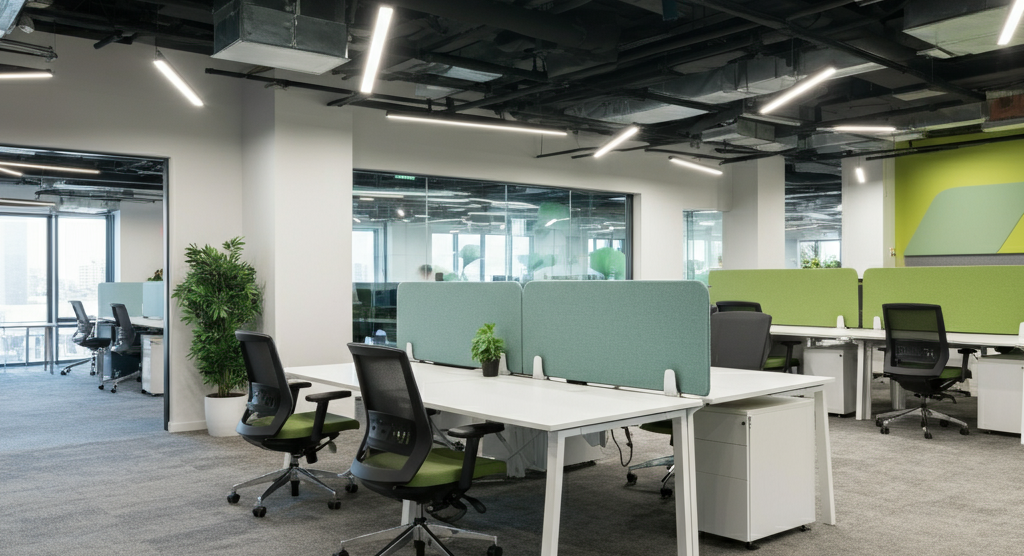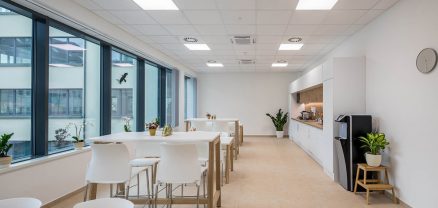Creating a Relaxing Yet Professional Atmosphere in Serviced Offices
The environment we work in has a profound effect on how we feel and perform. Striking the perfect balance between relaxation and professionalism in serviced offices is no small feat. Yet, when done right, it can transform a workspace into a hub of productivity and positivity. From thoughtful design choices to fostering a positive workplace culture, there are many ways to create a space that feels both welcoming and conducive to work.
The Power of Design
Design is the foundation of any office atmosphere. To meld relaxation with professionalism, serviced offices should focus on blending aesthetics and functionality. Neutral tones like whites, greys, and beiges create a clean and polished look, while accents of soft greens, blues, or warm earthy shades evoke a sense of tranquility. Decorative elements like potted plants, tasteful artwork, and natural textures can add warmth without sacrificing sophistication.
Furniture plays a pivotal role in shaping the atmosphere. Ergonomic chairs, adjustable desks, and cozy lounge seating provide comfort for both work and relaxation. Instead of harsh, fluorescent lighting, consider incorporating natural light wherever possible. Large windows or skylights create an open, uplifting ambience, while task lighting and dimmable lamps allow flexibility while maintaining professionalism.
Strategic zoning also helps maintain this balance. By creating distinct areas for focused work, informal meetings, and relaxation, employees can move seamlessly between tasks. For example, a quiet zone with comfortable seating and minimal distractions can promote concentration, while a softer, less formal lounge area encourages networking and downtime.
A Culture of Balance
Design and amenities set the stage, but workplace culture truly defines the atmosphere of a serviced office. A professional yet relaxed culture starts with leadership. Managers and team leaders should model a balance of professionalism and approachability. Leading with empathy and encouraging open communication helps create a space where employees feel valued.
Encouraging flexibility is another way to promote balance. Offering flexible working hours or hybrid working models allows employees to manage their own productivity in ways that suit them best. When people feel trusted to work how and when they work best, it fosters a sense of relaxation and empowerment.
Recognition also goes a long way in establishing a supportive culture. Whether it’s a shout-out during a team meeting or a small reward for a job well done, acknowledging contributions helps employees feel appreciated. This sense of appreciation contributes to a positive and harmonious environment.
Soundscapes and Scents
Sensory experiences like sound and scent subtly influence how we perceive a space. Playing light instrumental music in common areas or the gentle hum of natural sounds like rain or birds can make the office environment more serene. For tasks requiring high concentration, soundproof booths or noise-canceling measures allow workers to focus without unnecessary distractions.
Pleasant scents also enhance the atmosphere. Subtle fragrances like lavender, citrus, or eucalyptus can help reduce stress and make the workspace feel fresh. However, avoid overpowering scents that may not appeal to everyone; balance is always key when crafting a calming yet professional environment.
Why It All Matters
The goal of creating a relaxing yet professional serviced office is to equip employees and clients with an environment that supports both wellbeing and efficiency. When a workspace encourages relaxation in addition to productivity, it becomes a place where people want to spend their time. This not only attracts top talent but also leaves a lasting impression on visitors, highlighting the office as a space where professionalism meets humanity.
Whether through thoughtful design, top-notch amenities, or a supportive culture, achieving this balance is an investment in happiness and success. When relaxation and professionalism coexist harmoniously, serviced offices become inspiring spaces that bring out the best in everyone.

Do not hesitate to contact us
Get in touch, if you have any question


